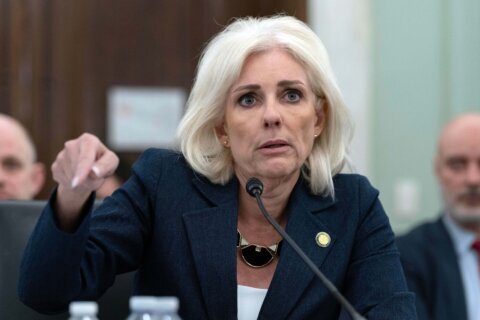Should parents be notified whenever their kids are exposed to “sexually explicit” content in schools? That could soon be the case in Virginia.
Legislation that would require local school districts adopt policies notifying parents of any “sexually explicit” content passed the Virginia Senate on Wednesday with a 20-18 vote.
Two Democrats — Sens. Lynwood Lewis, D-Accomack, and Monty Mason, D-Williamsburg — sided with Senate Republicans in supporting the bill, which is expected to breeze through the GOP-controlled House of Delegates.
What is or isn’t “sexually explicit” isn’t defined in the bill itself.
According to the Code of Virginia § 2.2-2827 – Restrictions on state employee access to information infrastructure: “Sexually explicit content” means (i) any description of or (ii) any picture, photograph, drawing, motion picture film, digital image or similar visual representation depicting sexual bestiality, a lewd exhibition of nudity, as nudity is defined in § 18.2-390, sexual excitement, sexual conduct or sadomasochistic abuse, as also defined in § 18.2-390, coprophilia, urophilia, or fetishism.
SB 656‘s passage is a victory for Gov. Glenn Youngkin, who had made greater parental oversight over local school curricula central to his campaign.
The bill would make public schools adopt policies notifying parents of any “sexually explicit” content in lesson plans, enabling parents to review instructional material and request nonexplicit alternatives for their student.
Supporters argue the bill is strictly aimed at expanding parental oversight.
“This is not about literature, this is about parental notification,” said bill sponsor Siobhan Dunnavant, a Republican representing parts of Henrico and Hanover counties. “This bill is something we can all embrace, because it’s about actually making sure tough conversations happen and parents interact with their children on those things.”
Opponents warn the measure could be used to restrict LGBTQ material in schools and make it harder for students to access information.
“The senator has argued this is not a censorship bill, but in fact, this is what it comes from and what it leads to,” said Sen. Ghazala Hashmi, D-Chesterfield. “Invariably, it is the writing of Black and brown authors … we see this debate take place publicly, particularly recently about Toni Morrison.”
WTOP’s Alejandro Alvarez and Will Vitka contributed to this report.








